Find Help
More Items From Ergsy search
-
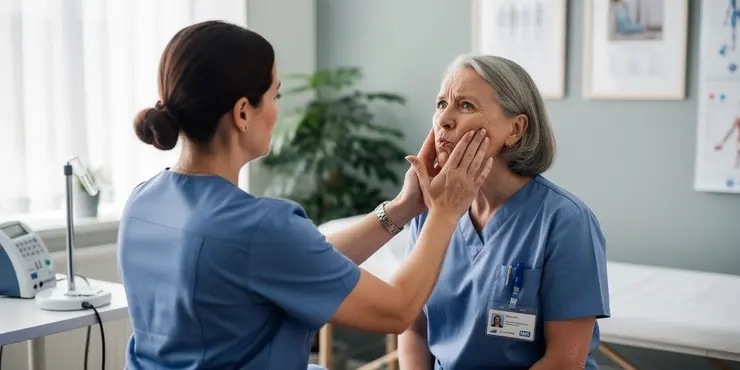
NHSGGC - Respiratory Physiotherapy Service: Self-Management
Relevance: 100%
-
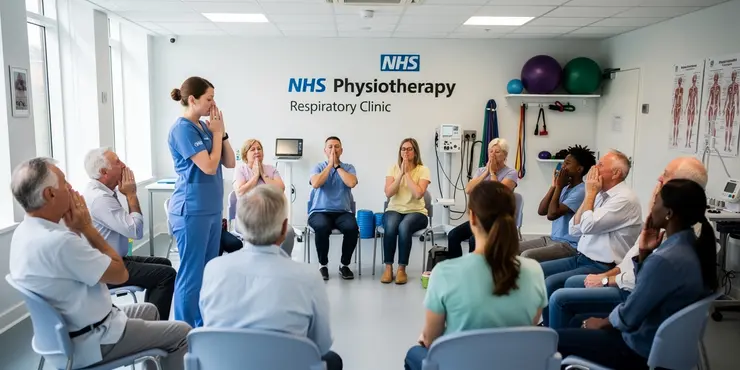
Can air physiotherapy prevent respiratory infections?
Relevance: 63%
-

How does air physiotherapy work?
Relevance: 46%
-
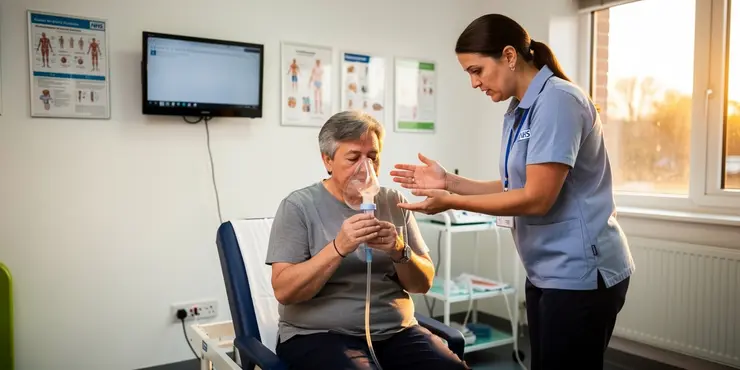
What is air physiotherapy?
Relevance: 46%
-
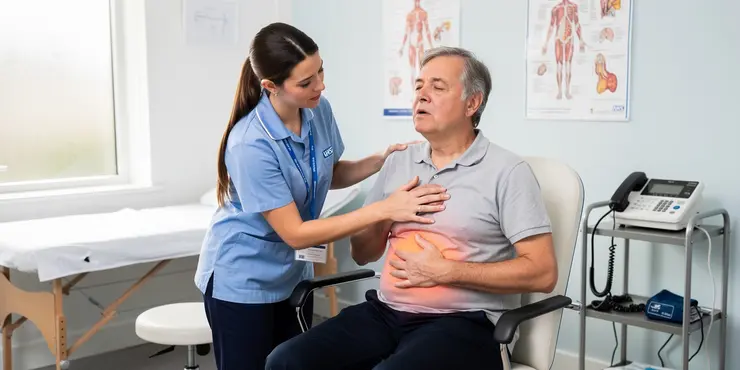
Are there any exercises involved in air physiotherapy?
Relevance: 45%
-
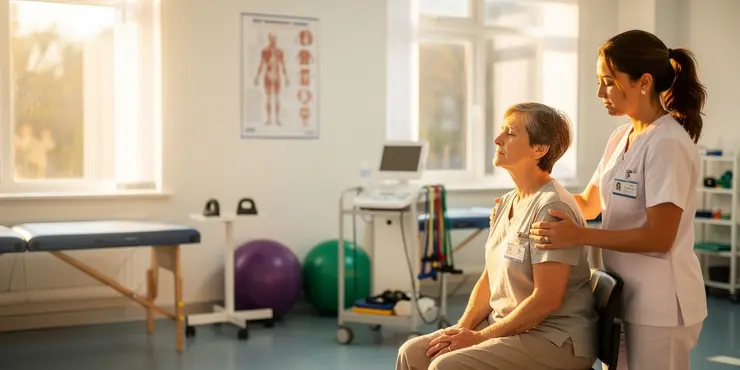
Is a prescription needed for air physiotherapy?
Relevance: 44%
-
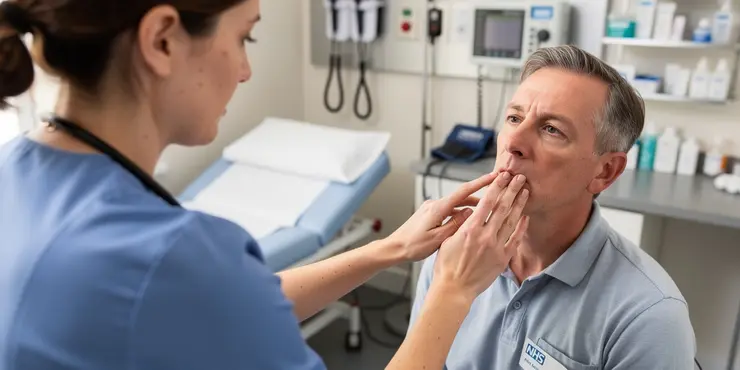
How often should one perform air physiotherapy?
Relevance: 44%
-
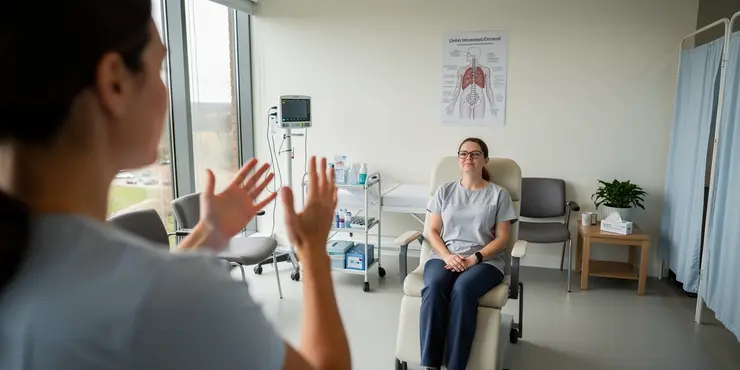
Does air physiotherapy involve medication?
Relevance: 43%
-
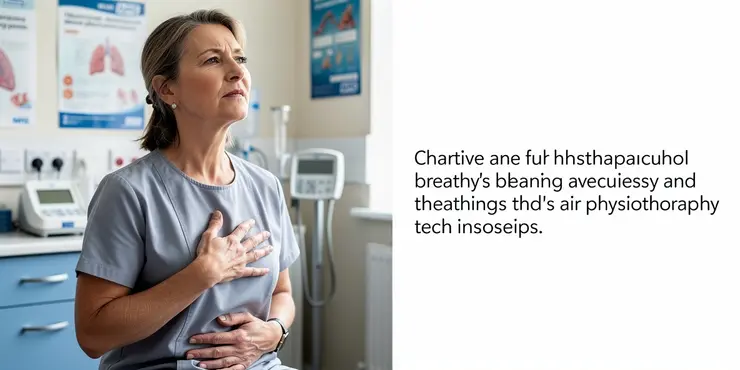
Who can benefit from air physiotherapy?
Relevance: 42%
-
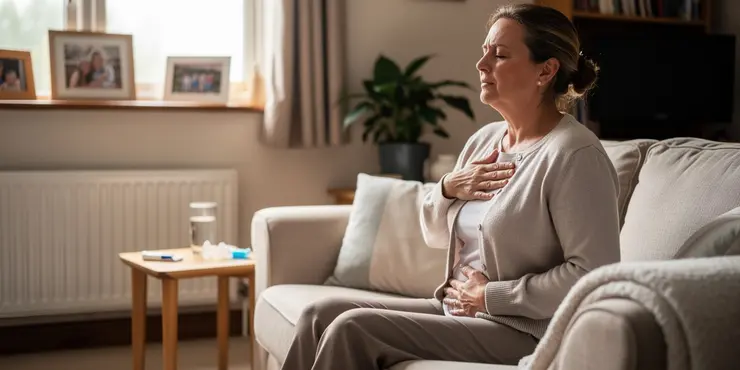
Can air physiotherapy be done at home?
Relevance: 41%
-
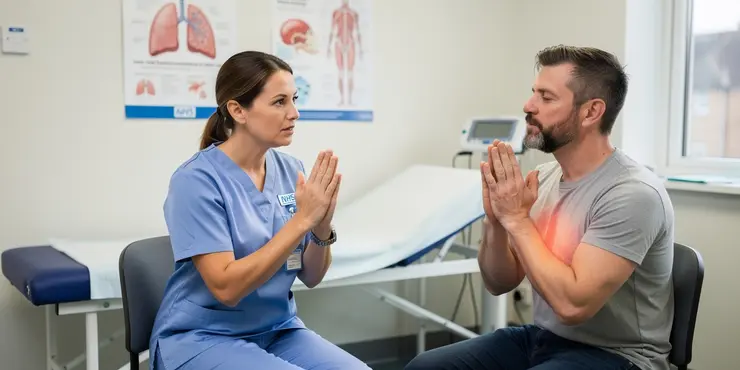
What qualifications should a provider of air physiotherapy have?
Relevance: 40%
-
Can air physiotherapy help with COVID-19 recovery?
Relevance: 40%
-
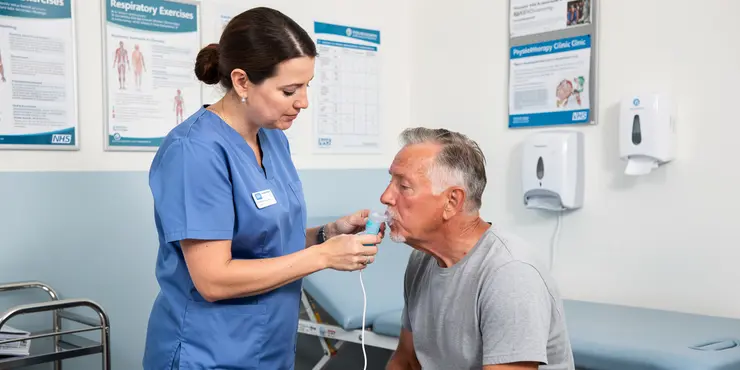
What equipment is used in air physiotherapy?
Relevance: 39%
-
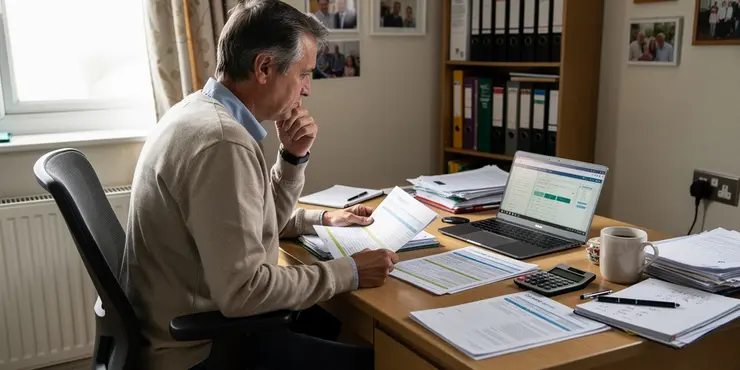
What are the risks of self-managing my pension without advice?
Relevance: 38%
-
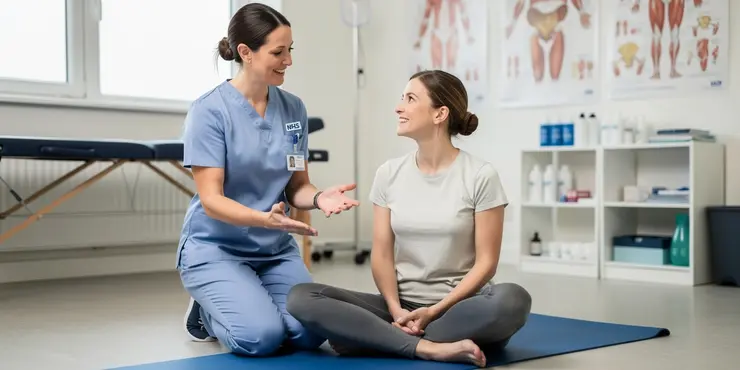
Incontinence and Prolapse - Physiotherapy Advice
Relevance: 33%
-

Understanding and Managing Respiratory Illnesses in Families
Relevance: 33%
-
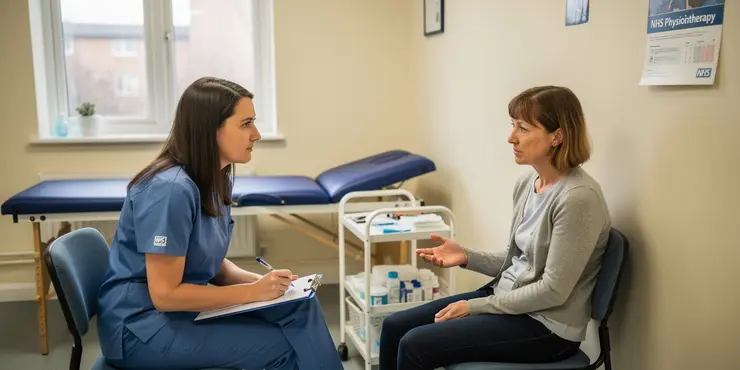
Physiotherapy Assessment of Urinary Incontinence
Relevance: 32%
-

What is an incentive spirometer in air physiotherapy?
Relevance: 32%
-
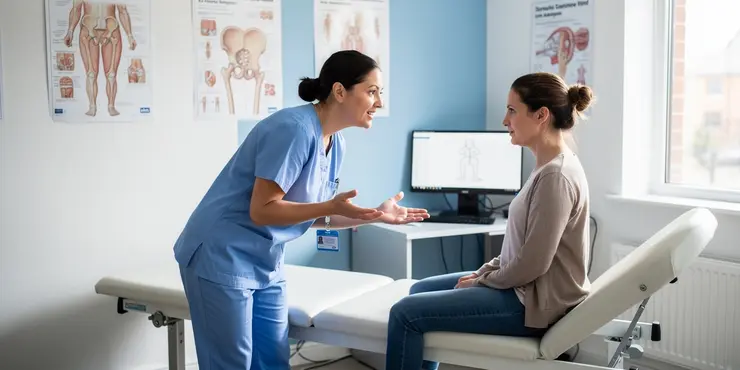
Incontinence and Prolapse - Physiotherapy Advice
Relevance: 32%
-
Are there any respiratory benefits linked to using sunbeds?
Relevance: 31%
-
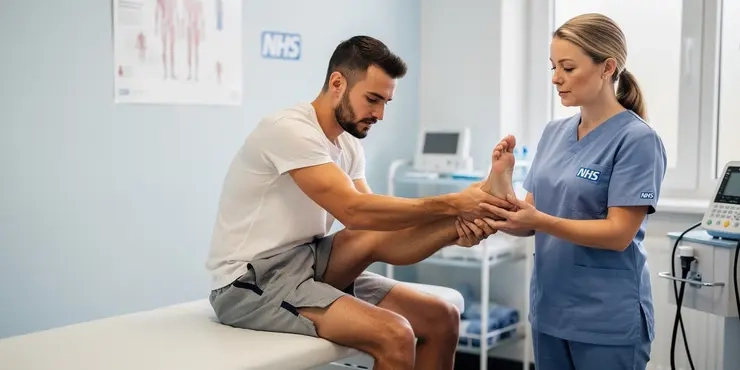
Physiotherapy Exercises following an Ankle Fracture
Relevance: 31%
-
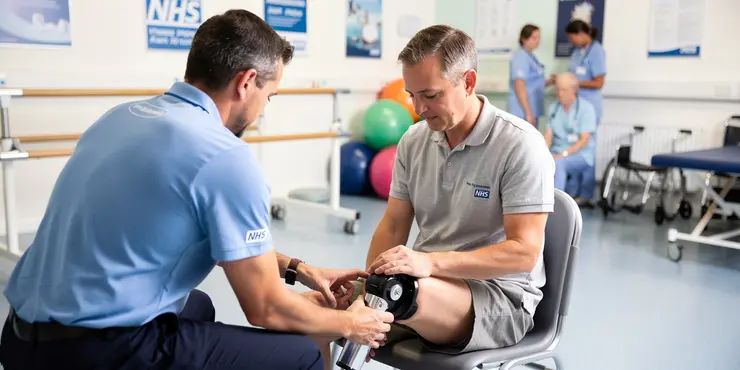
The Leeds Specialist Rehabilitation Centre - 3 Prosthetic Physiotherapy
Relevance: 30%
-
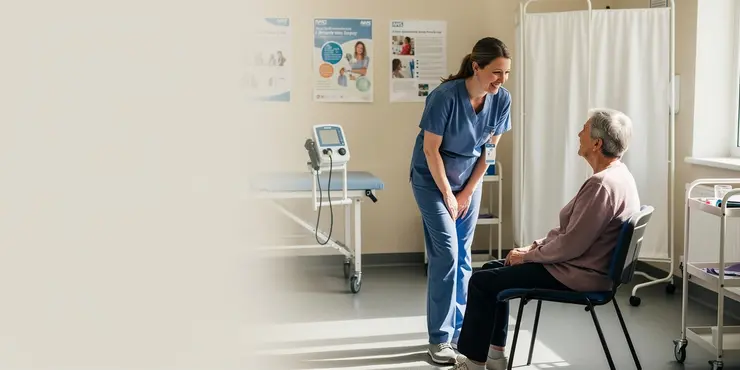
UK Sees Surge in Respiratory Illnesses as Weather Cools
Relevance: 30%
-
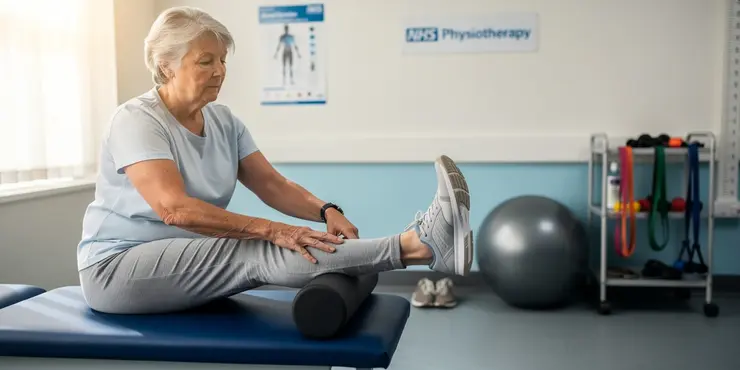
Part One: Understanding Osteoarthritis- MSK Physiotherapy
Relevance: 28%
-
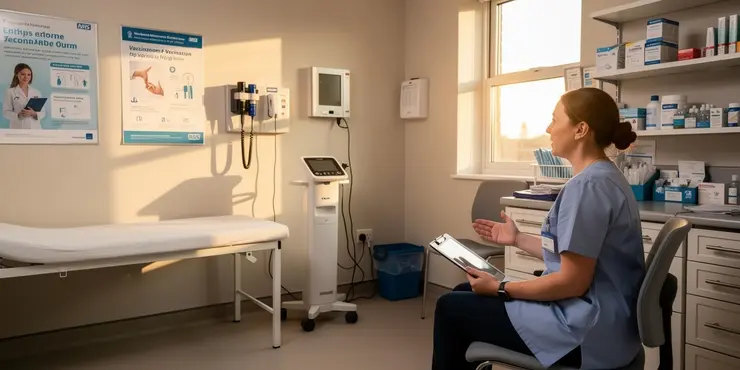
Latest Advice on Managing Respiratory Illnesses During Flu Season
Relevance: 28%
-
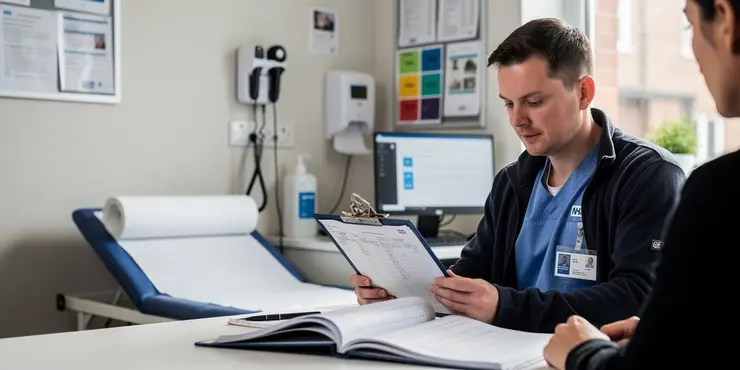
High Air Pollution Levels Linked to Rising Cases of Respiratory Issues
Relevance: 27%
-
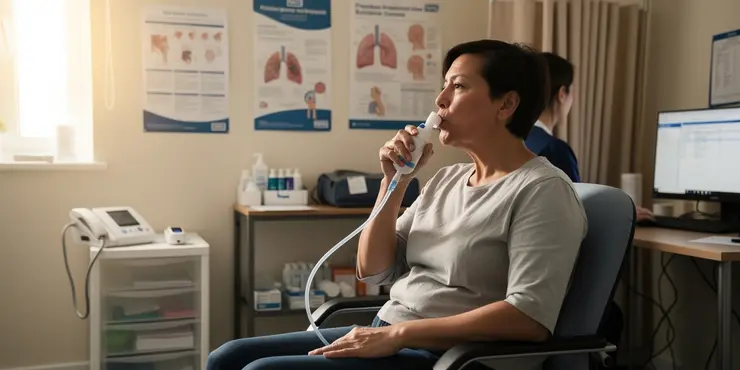
How does PEP therapy work in air physiotherapy?
Relevance: 24%
-
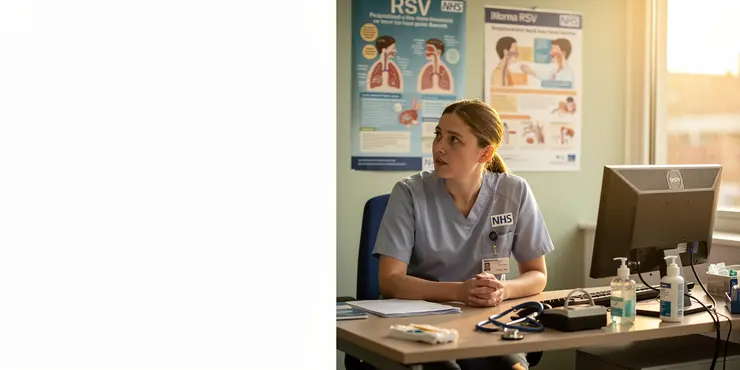
What is RSV (Respiratory Syncytial Virus) or bronchiolitis? UHL NHS Trust
Relevance: 23%
-
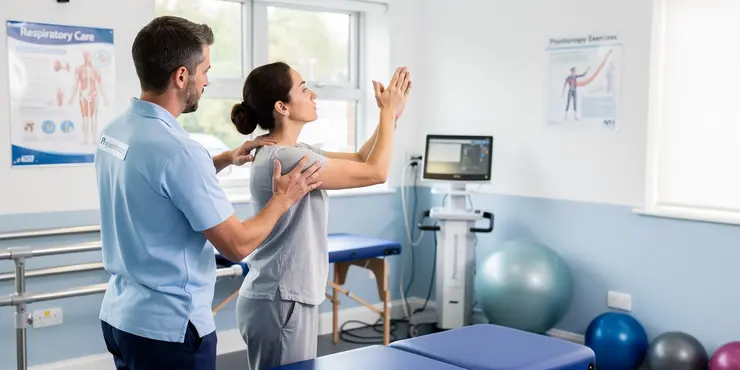
Is air physiotherapy different from traditional physiotherapy?
Relevance: 20%
-

Rheumatoid arthritis | NHS
Relevance: 17%
-
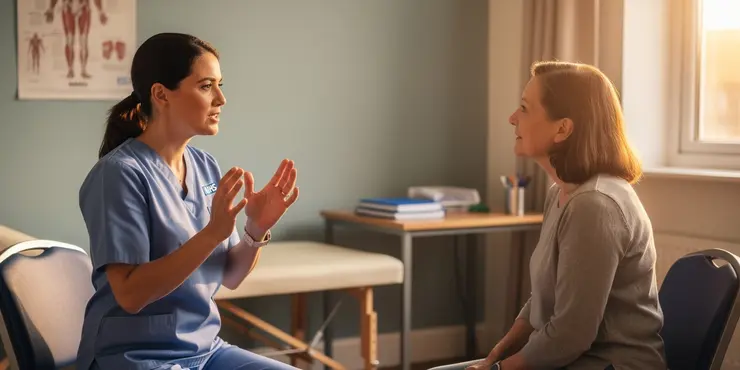
Are there any risks associated with air physiotherapy?
Relevance: 16%
-
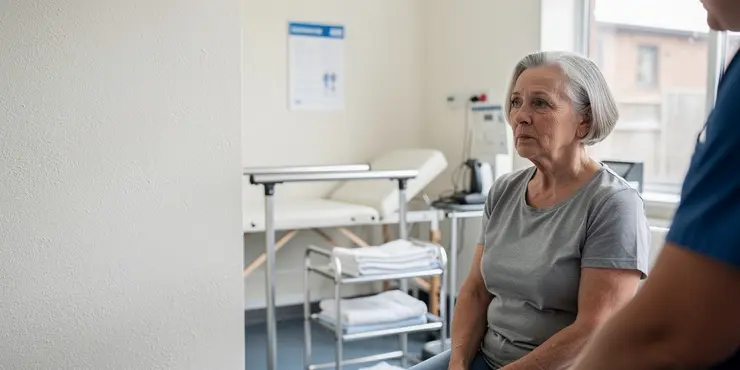
Osteoarthritis: Elaine's story | NHS
Relevance: 14%
-
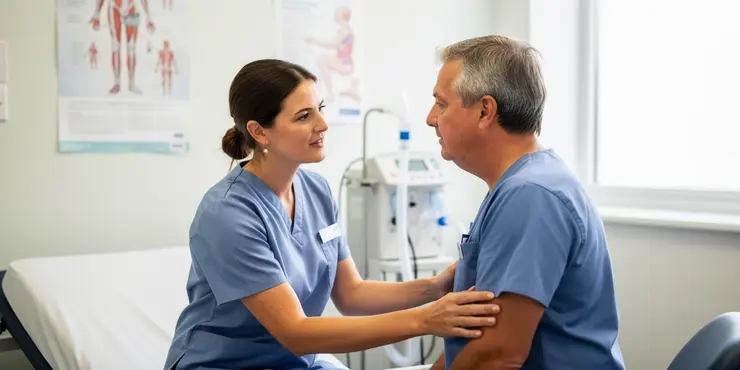
How long does an air physiotherapy usually continue?
Relevance: 14%
-
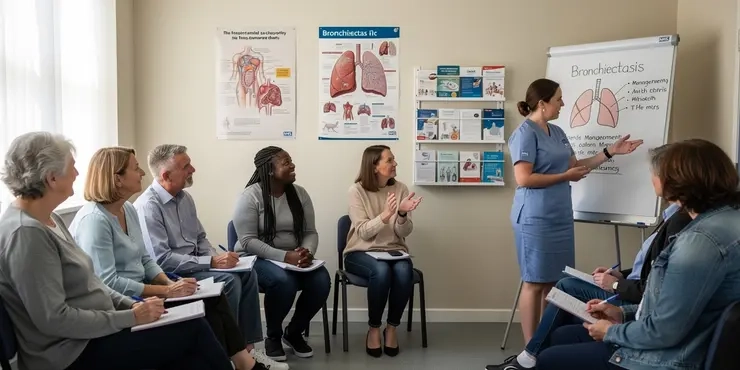
Bronchiectasis Class
Relevance: 14%
-
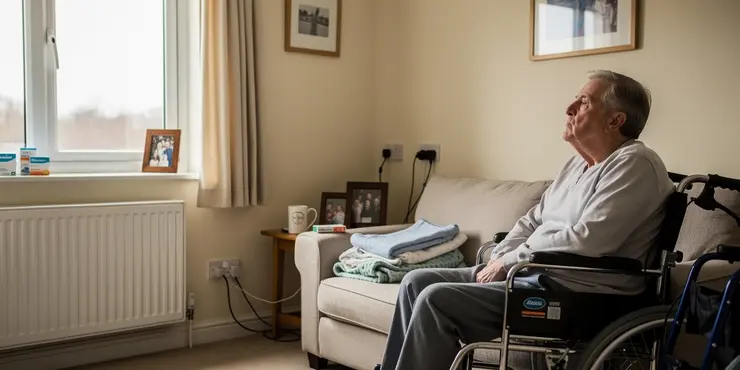
How is breathing affected by motor neurone disease?
Relevance: 13%
-
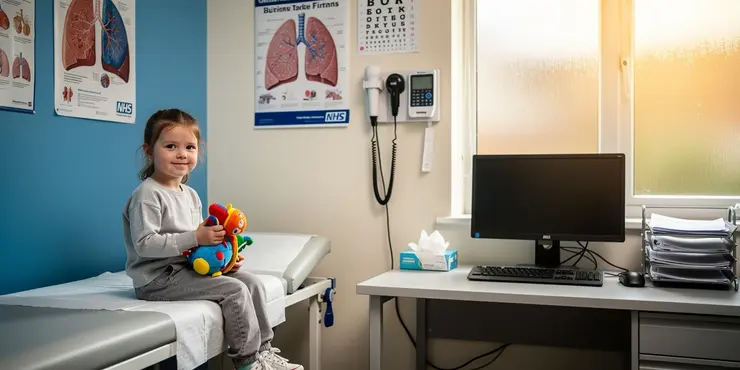
What is Cystic Fibrosis?
Relevance: 13%
-
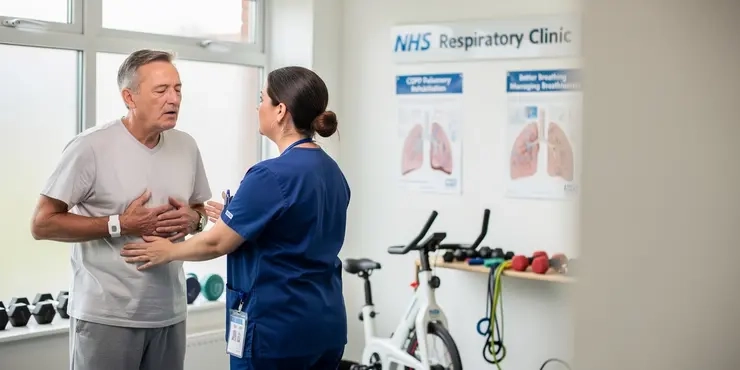
Pulmonary rehabilitation | NHS
Relevance: 13%
-
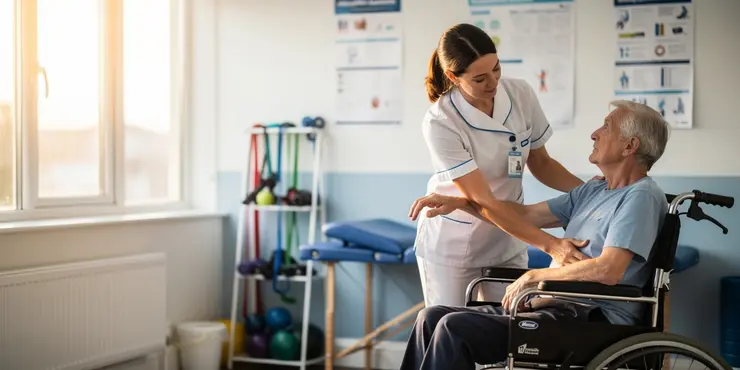
What treatments are available for motor neurone disease?
Relevance: 13%
-
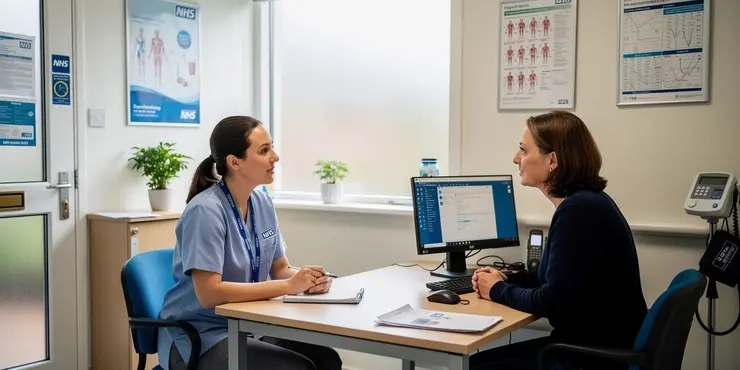
Bronchiectasis class presentation v2
Relevance: 12%
-
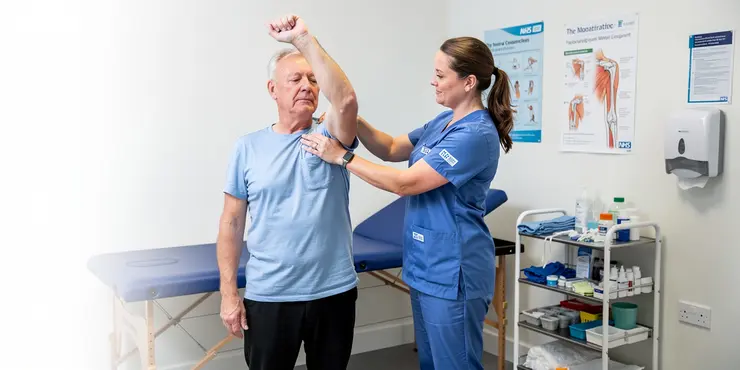
Frozen Shoulder Assisted Abduction
Relevance: 12%
NHSGGC Respiratory Physiotherapy Service: Self-Management
Understanding NHSGGC Respiratory Physiotherapy Service
The NHS Greater Glasgow and Clyde (NHSGGC) Respiratory Physiotherapy Service provides specialized support and care for individuals with respiratory conditions. This service is aimed at improving lung function, managing symptoms, and enhancing the overall quality of life for patients. Through various therapeutic techniques and exercises, respiratory physiotherapists work to optimize breathing efficiency and reduce respiratory distress. The service is an integral part of comprehensive respiratory care.
The Importance of Self-Management
Self-management is a critical component of effective respiratory care. It empowers patients to take an active role in managing their conditions, which can lead to better health outcomes and a higher quality of life. By learning self-management strategies, individuals can monitor their symptoms, perform breathing exercises, and make lifestyle adjustments that can help them to better cope with their respiratory conditions. Self-management education is often provided by respiratory physiotherapists to ensure patients have the knowledge and tools they need.
Key Strategies for Self-Management
Several key strategies are essential for effective self-management of respiratory conditions. These include:
- Breathing Exercises: Techniques such as diaphragmatic breathing and pursed-lip breathing help improve lung function and reduce shortness of breath.
- Physical Activity: Regular exercise can enhance cardiovascular and lung health, aiding in better symptom management.
- Medication Adherence: Taking prescribed medications as directed is crucial for controlling symptoms and preventing exacerbations.
- Monitoring Symptoms: Keeping track of symptoms and recognizing early warning signs can help in prompt intervention and management.
- Lifestyle Adjustments: Making changes such as quitting smoking and improving diet can significantly impact respiratory health.
Resources and Support
Patients under the care of the NHSGGC Respiratory Physiotherapy Service have access to various resources and support. This includes personalized care plans, educational materials, and regular follow-up with physiotherapists. Additionally, support groups and community resources can offer further assistance and encouragement. It's important for patients to stay informed and engaged with their healthcare team to ensure successful self-management of their respiratory conditions.
Conclusion
The NHSGGC Respiratory Physiotherapy Service provides essential care and support for individuals with respiratory conditions. Embracing self-management strategies is vital for improving health outcomes and maintaining a better quality of life. With the right tools, education, and support, patients can effectively manage their symptoms and lead healthier, more fulfilling lives.
NHSGGC Breathing Help: Looking After Yourself
What is NHSGGC Breathing Help?
The NHS Greater Glasgow and Clyde (NHSGGC) Breathing Help is for people who have trouble breathing. The service helps people breathe better, feel better, and live happier lives. Special helpers called physiotherapists teach people how to breathe easier with exercises. This is really important to help with breathing problems.
Why is Looking After Yourself Important?
Looking after yourself helps you manage your breathing problems. It means you can take charge and feel better. When you know how to care for yourself, you can watch your breathing, do exercises, and change little things in your life to help you feel good. Physiotherapists teach you what you need to know.
Ways to Look After Yourself
There are important ways to care for your breathing:
- Breathing Exercises: Learn special ways to breathe, like deep belly breathing, to help your lungs work better.
- Moving Your Body: Exercise regularly to help your heart and lungs stay strong.
- Taking Medicine: Follow your doctor's advice and take your medicine to feel better.
- Watching Your Symptoms: Keep an eye on how you feel and ask for help if things get worse.
- Changing Habits: Stop smoking and eat healthy foods to help your lungs.
Help and Support Available
If you are with the NHSGGC Breathing Help, there are many things to help you. You can get a plan just for you, learn from helpful guides, and talk to physiotherapists often. There are also groups and community aids to support you. It's good to stay in touch with your helper team to manage your breathing well.
Summary
NHSGGC Breathing Help is very important for people with breathing problems. Learning how to look after yourself can make you healthier and happier. With help, you can manage your symptoms and live a better life.
Frequently Asked Questions
What is respiratory physiotherapy?
Respiratory physiotherapy is a specialized area of physiotherapy that focuses on improving your breathing, lung function, and overall respiratory health.
Who can benefit from respiratory physiotherapy?
Individuals with lung conditions such as asthma, COPD, bronchiectasis, or cystic fibrosis, as well as those recovering from surgery or prolonged bed rest, can benefit from respiratory physiotherapy.
How can I access respiratory physiotherapy services?
You can access respiratory physiotherapy services through a referral from your GP or a respiratory consultant.
What techniques are used in respiratory physiotherapy?
Techniques include breathing exercises, chest physiotherapy, airway clearance techniques, and tailored exercise programs.
What is the goal of respiratory physiotherapy?
The goal is to improve respiratory efficiency, reduce breathlessness, clear secretions, and enhance the overall quality of life.
How often should I attend respiratory physiotherapy sessions?
The frequency of sessions can vary based on individual needs, often ranging from once a week to a few times per month.
Can respiratory physiotherapy help with breathlessness?
Yes, respiratory physiotherapy includes techniques and exercises designed to help manage and reduce breathlessness.
What should I expect during my first session?
During the first session, the physiotherapist will assess your medical history, current condition, and respiratory function to create a personalized treatment plan.
Are there any exercises I can do at home?
Yes, your physiotherapist will provide you with specific exercises and techniques to practice at home to continue improving your respiratory health.
How can I manage my respiratory condition during physical activity?
Your physiotherapist can teach you pacing and breathing techniques to manage your condition effectively during physical activity.
What equipment might be used in respiratory physiotherapy?
Equipment such as incentive spirometers, flutter devices, and positive expiratory pressure (PEP) devices may be used.
Can respiratory physiotherapy help with chronic cough?
Yes, specific techniques can help in managing and reducing chronic cough by clearing airway secretions and improving lung function.
Will respiratory physiotherapy cure my lung condition?
While respiratory physiotherapy cannot cure chronic lung conditions, it can significantly improve symptoms and enhance quality of life.
Is respiratory physiotherapy safe for everyone?
Yes, it is generally safe, but it's important to have a tailored plan created by a qualified physiotherapist to ensure safety and effectiveness.
Do I need special clothing for respiratory physiotherapy sessions?
It's best to wear comfortable, loose-fitting clothing that allows easy movement during your sessions.
What is breathing help from physiotherapy?
Breathing help from physiotherapy is when someone helps you to breathe better. They teach you exercises and ways to make your lungs strong. This helps you take in more air and feel better.
If you have trouble with your breathing, these exercises can really help. You might blow balloons or blow through a straw. These are fun ways to make your lungs work harder.
If you want more help, you can use videos or apps that show these exercises step-by-step. Ask your family, friends, or a teacher if you need more support.
Breathing physio is a type of therapy. It helps you breathe better, makes your lungs work well, and keeps your breathing healthy.
Who can get help from breathing exercises?
People with breathing problems like asthma, COPD, bronchiectasis, or cystic fibrosis, or people getting better from surgery or staying in bed for a long time, can get help from a special kind of exercise called breathing physiotherapy.
Here are some tools that might help:
- Use pictures or videos to help understand how the exercises work.
- Try breathing exercises slowly and follow along with a helper.
- Rest if you feel tired and start again when ready.
- Ask a friend or family member to do the exercises with you.
How can I get help with breathing exercises?
You can get help with breathing exercises from a special doctor. First, you need to talk to your regular doctor or a breathing doctor. They will help you get started.
What are the ways to help people breathe better?
Here are some ways that help people breathe more easily:
- Breathing Exercises: Practice taking slow, deep breaths to help your lungs get stronger.
- Coughing Techniques: Help clear your lungs by learning how to cough in a special way.
- Using Devices: Use special tools like a breathing mask or a little machine called an inhaler.
If you need help understanding, ask a doctor, a nurse, or a helper. They can show you the best way to use these tools and exercises.
Here are some ways to help:
- Try breathing exercises. They help you breathe better.
- Do chest physiotherapy. It helps clear your lungs.
- Use airway clearance techniques. These help keep your airways open.
- Follow an exercise program made just for you. It helps keep your body strong.
What does breathing exercises aim to do?
Breathing exercises help people breathe better.
Here are some things they do:
- Make your lungs stronger.
- Help clear your chest of mucus (sticky stuff).
- Make it easier to breathe.
Tools to help:
- A straw to blow bubbles in water.
- A small toy to blow across a table.
- A balloon to blow up.
The aim is to help you breathe better, feel less out of breath, clear mucus from your chest, and feel happier and healthier overall.
How many times should I go to breathing physiotherapy?
How often you have sessions can be different for each person. Some people have sessions once a week. Others have them a few times each month.
Can breathing exercises help you if you have trouble breathing?
If you have trouble breathing, exercises can sometimes help. These exercises are called breathing exercises. A special kind of doctor or therapist can teach you how to do them. This can help you breathe easier.
Here are some ways to feel better:
- Practice deep breathing - this means taking slow, big breaths.
- Sit or stand up straight - it helps your lungs get more air.
- Try blowing a pinwheel - it can make your breathing stronger.
Remember, it's good to talk to a doctor or therapist. They can tell you what exercises are best for you.
Yes, breathing physiotherapy is about exercises that help you breathe better and not feel out of breath.
What will happen in my first session?
When you go to your first session, someone nice will help you.
They will tell you what to do and answer your questions.
You can talk about why you are there and what you need.
If you feel scared, that is okay. They are there to help you feel better.
Remember to take deep breaths and relax.
If you need help to understand, bring a friend or family member with you.
At your first visit, the physiotherapist will learn about your health, how you are feeling now, and how you are breathing. This will help them make a special plan just for you.
Can I do exercises at home?
Yes, you can do exercises at home! Here are some simple ideas to try:
- Stretching: Reach for your toes or stretch your arms above your head.
- Jumping Jacks: Jump and spread your arms and legs wide, then jump back together.
- Walking in Place: March on the spot for a few minutes.
- Sit-ups: Lie on your back and sit up slowly.
- Dancing: Put on your favorite music and dance!
You can ask someone at home to join you. Or you can follow a video online. Have fun and stay safe!
Yes, your physiotherapist will give you exercises to do at home. These exercises will help you breathe better.
How can I take care of my breathing during exercise?
Your physio can show you how to pace yourself and breathe well when you move around. This helps you feel better and do more.
What tools are used to help with breathing exercises?
Sometimes people need help with their breathing. There are special tools to make this easier. These tools help your lungs work better.
Here are some tools that might help:
- Inhalers: These help you breathe in medicine to open your lungs.
- Balls or Bottles: Blowing into these can make your lungs stronger.
- Breathing Masks: These give you oxygen to help you breathe better.
If you find it hard to remember to use your tools, ask a grown-up for help.
There are apps and alarms that can remind you when to use your breathing tools.
You can use special breathing tools. These tools help you breathe better. Some of the tools are called: breathing exercise machine, flutter device, and PEP device.
Can breathing exercises help with a long-lasting cough?
Yes, there are ways to help stop a long-lasting cough. These ways can help clear your throat and make your lungs work better.
Can breathing exercises help my lungs get better?
Breathing exercises cannot fix lung problems, but they can help you feel better and make life easier.
Can everyone safely do breathing exercises?
Yes, it is safe. But, it's important to have a special exercise plan made by a trained physiotherapist. This makes sure it's safe and works well.
What clothes should I wear for breathing exercises with a physio?
Wear clothes that are comfortable and easy to move in. You might do exercises that need you to stretch or lie down, so make sure your clothes are not tight.
If you need help reading or understanding, you can ask someone to read with you or use pictures to help explain.
Wear clothes that are comfy and not too tight. This helps you move easily during your sessions.
Useful Links
This website offers general information and is not a substitute for professional advice.
Always seek guidance from qualified professionals.
If you have any medical concerns or need urgent help, contact a healthcare professional or emergency services immediately.
Some of this content was generated with AI assistance. We’ve done our best to keep it accurate, helpful, and human-friendly.
- Ergsy carfully checks the information in the videos we provide here.
- Videos shown by Youtube after a video has completed, have NOT been reviewed by ERGSY.
- To view, click the arrow in centre of video.
- Most of the videos you find here will have subtitles and/or closed captions available.
- You may need to turn these on, and choose your preferred language.
- Go to the video you'd like to watch.
- If closed captions (CC) are available, settings will be visible on the bottom right of the video player.
- To turn on Captions, click settings .
- To turn off Captions, click settings again.
More Items From Ergsy search
-

NHSGGC - Respiratory Physiotherapy Service: Self-Management
Relevance: 100%
-

Can air physiotherapy prevent respiratory infections?
Relevance: 63%
-

How does air physiotherapy work?
Relevance: 46%
-

What is air physiotherapy?
Relevance: 46%
-

Are there any exercises involved in air physiotherapy?
Relevance: 45%
-

Is a prescription needed for air physiotherapy?
Relevance: 44%
-

How often should one perform air physiotherapy?
Relevance: 44%
-

Does air physiotherapy involve medication?
Relevance: 43%
-

Who can benefit from air physiotherapy?
Relevance: 42%
-

Can air physiotherapy be done at home?
Relevance: 41%
-

What qualifications should a provider of air physiotherapy have?
Relevance: 40%
-
Can air physiotherapy help with COVID-19 recovery?
Relevance: 40%
-

What equipment is used in air physiotherapy?
Relevance: 39%
-

What are the risks of self-managing my pension without advice?
Relevance: 38%
-

Incontinence and Prolapse - Physiotherapy Advice
Relevance: 33%
-

Understanding and Managing Respiratory Illnesses in Families
Relevance: 33%
-

Physiotherapy Assessment of Urinary Incontinence
Relevance: 32%
-

What is an incentive spirometer in air physiotherapy?
Relevance: 32%
-

Incontinence and Prolapse - Physiotherapy Advice
Relevance: 32%
-
Are there any respiratory benefits linked to using sunbeds?
Relevance: 31%
-

Physiotherapy Exercises following an Ankle Fracture
Relevance: 31%
-

The Leeds Specialist Rehabilitation Centre - 3 Prosthetic Physiotherapy
Relevance: 30%
-

UK Sees Surge in Respiratory Illnesses as Weather Cools
Relevance: 30%
-

Part One: Understanding Osteoarthritis- MSK Physiotherapy
Relevance: 28%
-

Latest Advice on Managing Respiratory Illnesses During Flu Season
Relevance: 28%
-

High Air Pollution Levels Linked to Rising Cases of Respiratory Issues
Relevance: 27%
-

How does PEP therapy work in air physiotherapy?
Relevance: 24%
-

What is RSV (Respiratory Syncytial Virus) or bronchiolitis? UHL NHS Trust
Relevance: 23%
-

Is air physiotherapy different from traditional physiotherapy?
Relevance: 20%
-

Rheumatoid arthritis | NHS
Relevance: 17%
-

Are there any risks associated with air physiotherapy?
Relevance: 16%
-

Osteoarthritis: Elaine's story | NHS
Relevance: 14%
-

How long does an air physiotherapy usually continue?
Relevance: 14%
-

Bronchiectasis Class
Relevance: 14%
-

How is breathing affected by motor neurone disease?
Relevance: 13%
-

What is Cystic Fibrosis?
Relevance: 13%
-

Pulmonary rehabilitation | NHS
Relevance: 13%
-

What treatments are available for motor neurone disease?
Relevance: 13%
-

Bronchiectasis class presentation v2
Relevance: 12%
-

Frozen Shoulder Assisted Abduction
Relevance: 12%


